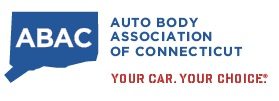
N.H. bill: Insurers must pay auto body shop its door mechanical rates; ABAC objects
By onAssociations | Business Practices | Insurance | Legal | Repair Operations | Technology
A new bill in the New Hampshire House would force insurers to pay the mechanical door rate of any body shop capable of the work and use the repairer’s estimating service to define mechanical work.
Last year’s House Bill 1663 had originally declared the fair and reasonable price” required to be reimbursed by an insurer as one that “shall not be lower than that customarily paid to a repair shop or facility in the area that is part of or affiliated with an automobile dealership.”
HB 1663 sponsor Rep. Dennis Green, R-Hampstead, and Lori Nadeau of Birch Street Collision last year told the New Hampshire Senate Commerce Committee of an self-defeating insurer preference to sublet mechanical work to a dealership and pay for tows both ways rather than pay the identical mechanical door rate of a body shop equipped for the work.
“We started this bill with mechanical rates because the insurance companies will reimburse us to pay someone else to do the mechanical work for us,” Nadeau said last year. “But they won’t pay us the same rate in our own shop.”
HB 1663 was ultimately gutted to create a committee to study auto body labor rates. A Nov. 1, 2018, report from the committee acknowledged hearing from repairers:
After failing to agree to an acceptable labor rate for mechanical work, the insurer will hire the shop to perform body work and then pay to have the vehicle stored at the facility and towed to a dealer for the mechanical work; this ultimately costs the insurer more than having all of the work performed at the independent shop.
The committee said legislation on the topic was proposed and discussed during its work. The then-hypothetical bill would amend New Hampshire statute 417:4 XX(c) to add:
Every insurance carrier offering insurance in the state of New Hampshire shall reimburse New Hampshire businesses capable of conducting mechanical repairs covered by such insurance in the amount equal to that which is normally and reasonably charged by the mechanical repairer for like service and repairs rendered to retail consumers who are not using insurance coverage for such repair. Mechanical repairs shall be defined by industry utilized repair estimate database providers.

The new House Bill 432, sponsored by committee member state Rep. Kermit Williams, D-Wilton; Green; and a mix of other senators and representatives, uses basically that language and would apply to the same statute:
Insurance carriers offering insurance in the state of New Hampshire shall reimburse New Hampshire businesses capable of conducting mechanical repairs covered by such insurance in the amount equal to that which is normally and reasonably charged by the mechanical repairer for like service and repairs rendered to retail consumers who are not using insurance coverage for such repair. Mechanical repairs shall be defined by the industry utilized repair estimate database providers used by the repairer.
HB 432 would also force insurers to cover third-party paint and materials bills.
“When an automobile repairer follows the paint and materials estimate from a paint manufacturer or nationally recognized third party guide or combination thereof, the insurer shall reimburse the repairer invoice based on such estimate,” a new RSA 417:4 XX(d) would state. The idea of insurers recognizing and reimbursing based upon paint and materials calculators also came up during the committee’s discussions.
Automotive Service Association lobbyist Robert Redding Jr., whose organization supports another Williams and Green bill related to OEM repair procedures, said the ASA wasn’t involved in the mechanical rate bill.
However, Redding said Tuesday ASA members in other areas have called about taking action in their states, indicating the insurer behavior is occurring outside New Hampshire. He said he had spoken to a Georgia repairer today about the topic.
ASA this session was concentrating on its repair procedures bills and blocking efforts to repeal state safety inspections, Redding said.
ABAC objects
The Auto Body Association of Connecticut recently issued a statement arguing that HB 432 created a double standard where insurers had to pay a door mechanical rate but not a posted body rate.
“This bill gratuitously draws a distinction between ‘mechanical’ and ‘auto body’ repair work and the reimbursement for the same,” ABAC wrote. “This distinction is misleading and would only serve to further distort the cost of auto body repairs. Why would New Hampshire seek to legislate that mechanical repairs be worthy of being paid that amount which is ‘normally and reasonably charged to retail consumers who are not using insurance coverage,’ but that same standard would not apply to auto body repair? That’s like saying: we support efforts by insurers to illegally conspire to suppress fair market rates for auto body repair, but not for mechanical repairs. Once again, it makes no sense.”

The trade group also objected to the language describing an insurer reimbursing the repairer for paint and materials, pointing out that this improperly injected the insurer into the repair process.
“We support efforts by repairers to be paid on a more fair basis, but legislating a direct reimbursement from an insurer to a repairer contradicts the dynamics of the relationship and puts insurers in a greater position to influence how vehicles are repaired something that is harmful to consumer safety and to quality repair,” ABAC wrote.
ABAC raises an important unintended consequences point for repairers and lawmakers to consider this legislative session.
While insurers love to inject themselves in the repair process, they’re not actually part of it. The shop’s contract and duty — even a DRP shop’s contract and duty — is with the vehicle owner, and the owner in turn owes the shop for the work. The vehicle owner or at-fault party’s contract is with the insurer, and the insurer/at-fault party owes the vehicle owner for the cost of the repair.
“The reimbursement for the identified services is something an insurer would already be legally obligated to do,” ABAC wrote regarding similar insurer-repair language in House Bill 664. “The reimbursement structure contemplated in the original draft language suggests that an insurer would owe a duty to directly indemnify a repair facility when, in fact, that duty is actually owed to its insured or the insured’s victim. Thus, it makes no sense to legislate a duty to make direct payment from an insurer to an auto repair facility, which is the primary basis for our objection.”
A recent Texas Appeals Court ruling supported this notion by pointing out that a repairer arguing GEICO owed the cost of the shop’s labor rate actually had no contract with GEICO to that point.
Collision repair attorney Erica Eversman and former shop owner Wade Ebert have said an insurer has three options: Reimburse the customer for the cost of the repair, total the car and pay for it or elects to oversee the repair process as a contractor — which sticks them with all liability and so will never be the carrier’s choice, Eversman and Ebert said at SEMA 2018.
Eversman said that even lawyers and judges get confused by the reality the insurer has no role in a repair unless it actually elects to repair itself.
“They just don’t get it,” she said. Having good, clear contracts with customers can make your life easier in court, she suggested.
House Bill 432 was sent to the House Commerce and Consumer Affairs Committee — on which Williams serves as vice chairman — and scheduled for a hearing Jan. 29. No action has been reported since then.
Be heard: Contact information for New Hampshire lawmakers can be found here and here.
Images:
The New Hampshire House is shown Oct. 11, 2013. (kickstand/iStock)
New Hampshire Rep. Kermit Williams, D-Wilton. (Provided by New Hampshire General Court)
The logo of the Auto Body Association of Connecticut is shown. (Provided by Auto Body Association of Connecticut)
